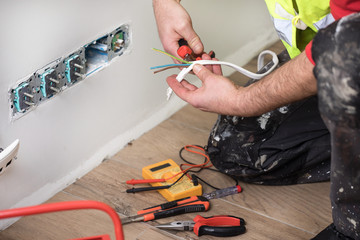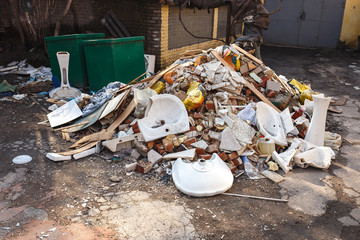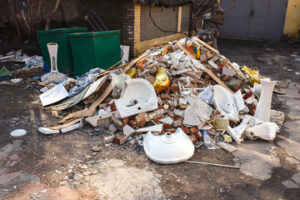An electrician is a skilled professional responsible for installing, maintaining, and repairing electrical systems in various settings, ensuring that power flows safely and efficiently. Their work extends from residential buildings to commercial and industrial facilities, where they handle wiring, circuit breakers, transformers, and other electrical components.
The role of an electrician requires both technical expertise and a deep understanding of safety protocols to prevent hazards such as electrical fires, shocks, and system failures. Contact The Electrician LC for professional help.
The training process for electricians typically involves a combination of classroom education and hands-on experience through apprenticeships. These programs provide aspiring electricians with fundamental knowledge of electrical theory, wiring practices, circuitry, and local electrical codes. During their apprenticeship, they work under the supervision of experienced professionals, gradually gaining the skills necessary to handle complex electrical tasks. Some electricians pursue further specialization in areas such as renewable energy, industrial automation, or high-voltage systems, which require additional training and certification.
Electricians play a crucial role in ensuring the safety and functionality of electrical systems in homes, businesses, and large-scale infrastructure projects. They are responsible for reading and interpreting blueprints, determining the best placement for outlets, lighting fixtures, and other electrical devices. Their work also involves diagnosing issues in existing systems, repairing faulty wiring, and upgrading components to meet modern energy efficiency standards. With the growing demand for sustainable energy solutions, many electricians are now involved in the installation of solar panels, energy-efficient lighting, and smart home technology, helping to reduce energy consumption and environmental impact.
One of the most important aspects of an electrician’s job is adhering to safety regulations and industry standards. They must follow strict guidelines to ensure that electrical systems are installed correctly and function safely. This includes using the appropriate tools and protective equipment, testing electrical connections to prevent short circuits, and ensuring compliance with regulatory codes. Failure to follow proper safety procedures can result in serious injuries or even fatalities, making it essential for electricians to remain vigilant and knowledgeable about best practices.
Electricians often work in diverse environments, ranging from construction sites and office buildings to residential homes and industrial plants. The nature of their work requires them to be physically fit, as they may need to climb ladders, crawl through tight spaces, and carry heavy equipment. Depending on the project, they might work indoors or outdoors, sometimes in extreme weather conditions. Their schedules can also vary, with some working regular hours while others may be on call for emergency repairs. Those who specialize in maintenance roles often perform routine inspections to identify potential issues before they become major problems.
The profession offers various career paths, with opportunities for advancement based on experience and expertise. Many electricians start as apprentices and eventually become journeymen, gaining the ability to work independently. With further experience, they may qualify as master electricians, allowing them to supervise projects, train apprentices, and even start their own electrical contracting businesses. Some choose to specialize in specific industries such as aviation, healthcare, or telecommunications, where their skills are highly valued.
Technology continues to influence the field of electrical work, leading to advancements in automation, smart grids, and energy-efficient solutions. Electricians must stay updated with emerging trends and technological innovations to remain competitive in the industry. Continuing education and certification programs help them keep pace with changes in electrical codes, new tools, and evolving best practices. As society becomes increasingly dependent on electricity for daily operations, the demand for skilled electricians remains high, making it a stable and rewarding career choice.
Despite the technical nature of the profession, electricians must also possess strong problem-solving and communication skills. They often collaborate with engineers, architects, construction workers, and clients to ensure that projects are completed efficiently and safely. Effective communication is essential when explaining complex electrical concepts to clients who may not have technical expertise. Electricians must also be able to adapt quickly to unexpected challenges, such as troubleshooting faulty wiring or adjusting installations to meet new building requirements.
The financial prospects of an electrician can be promising, depending on experience, specialization, and location. Those who establish their own businesses have the potential to earn higher incomes, especially if they secure large contracts or specialize in high-demand services. Entry-level electricians may start with modest earnings, but as they gain expertise and certifications, their earning potential increases significantly. The growing emphasis on renewable energy and sustainability has also opened new opportunities for electricians who specialize in green technologies, such as electric vehicle charging stations and energy storage systems.
A career as an electrician is both challenging and rewarding, requiring a combination of technical knowledge, physical endurance, and a commitment to safety. The profession plays an essential role in modern society, ensuring that electrical systems function properly and meet evolving energy demands. As technology advances and infrastructure continues to expand, electricians will remain indispensable in building and maintaining the electrical networks that power homes, businesses, and industries. Whether working on a small residential project or a large-scale industrial installation, electricians contribute significantly to the safety, efficiency, and innovation of electrical systems, making their role vital in everyday life.


